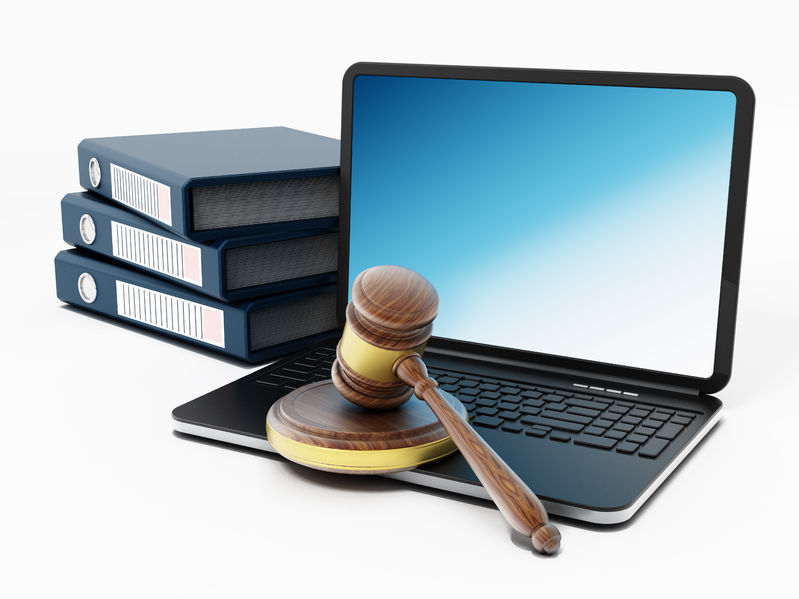10 November 2015
Technology sparks e-discovery revolution throughout legal profession
Justine Phillips is a legal pioneer using technology to evolve the profession and its paper-filled world.
 As special counsel in the Labor and Employment Practice Group of Sheppard Mullin at its Del Mar office, Phillips went the paperless route back in 2008 — light years before many of her colleagues — by storing all her case filings electronically.
As special counsel in the Labor and Employment Practice Group of Sheppard Mullin at its Del Mar office, Phillips went the paperless route back in 2008 — light years before many of her colleagues — by storing all her case filings electronically.
“It’s been coming. You can’t close your eyes anymore,” she said. “There’s a red flag being waved all over and federal rules are changing. If you don’t have someone in your firm with the right tech skills, you won’t be able to work specific cases.”
The State Bar of California recently upped the ante with Formal Opinion No. 2015-1936, stating that a lack of technical knowledge could render an attorney “ethically incompetent to handle certain litigation matters involving e-discovery, absent curative assistance under rule 3-110(C), even where the attorney may otherwise be highly experienced. It also may result in violations of the duty of confidentiality, notwithstanding a lack of bad-faith conduct.”
Law firms that don’t get up-to-speed on newer processes will simply be out of the game.
The high stakes associated with discovery in litigation have sparked new motivation for firms to seek out professionals who can help them meet these new requirements with matched technical skill sets. From small to large firms and corporations, there is increased need for multifaceted professionals to help lower overall cost by providing such services, which in turn helps them remain competitively attractive to clients.
E-discovery knowledge brings opportunity
While e-discovery is becoming more common, many law schools are not fully preparing students. A recent report by Kroll Ontrack, a legal data management consulting firm, found that of 193 law schools surveyed, 124 did not offer specific e-discovery curricula, bringing additional need for litigation technology courses for job-seeking professionals.
“Adding a litigation technology certification to a law degree or paralegal certification makes candidates dangerously competitive,” said Scott Robinson, senior solutions consultant of Inventus, a consulting practice focused on helping clients effectively manage the legal discovery process. “This is what is necessary to move any legal career to the next level. Professionals need to gain more than just a general understanding of technical legal processes.”
Phillips says she doesn’t see many legal professionals fully committed to learning technical ways to manage discovery and believes this current way of thinking could lead to major repercussions for their careers.
“It’s necessary to empower your career and make yourself indispensable with billable skills that help remove administrative burdens and allow for more time to perform analytical tasks. The only way to do this is to embrace technology,” said Phillips.
Must-have litigation technology skills
To prepare those in the legal community — from attorneys and paralegals to Information Technology professionals — UC San Diego Extension has developed its Litigation Management Technology certificate. Julia Dunlap, Esq., director of legal education at Extension, says the certificate is offered as part of the legal portfolio and provides an additional and separate learning opportunity from its American Bar Association approved Paralegal certification program.
Christi McGowan, an advisor and instructor at Extension, as well as the litigation support manager at Bienert, Miller and Katman, helped develop the new certificate to address the technological skills gap throughout the legal profession. According to McGowan, too few in the legal profession know how to effectively deal with the increased automation of legal processes, huge volumes of electronic data and growth of large-scale complex litigation.
The six-course certificate features experts in both the legal and technology fields to provide both practical and interactive approaches in such topics as:
-
Electronically stored information
-
Electronic discovery reference model
-
Litigation readiness
-
Project management as related to legal representation
-
Current legal software used in managing databases
-
Technology use for streamlined and persuasive trial presentations
McGowan says a key component of the new certificate is its hands-on approach – something she believes is critical when it comes to learning new technologies. Such interaction is also something in short supply throughout legal education opportunities. According to the Ontrack survey, of the 69 law schools offering technology courses featuring e-discovery, only eight of them offered learning experiences in a hands-on format.
McGowan says that by having a combination of instructors with legal and technical backgrounds, the overall certificate experience is set to bring more insight to the constantly evolving nature of technologies with framework on how it can improve legal processes.
To find out more about the Litigation Management Technology Certificate and other UC San Diego Extension legal education programs, visit www.extension.ucsd.edu/Law; or contact Azra Mukanovic, Legal Education Coordinator at (858) 534-8152 or unexlaw@ucsd.edu.